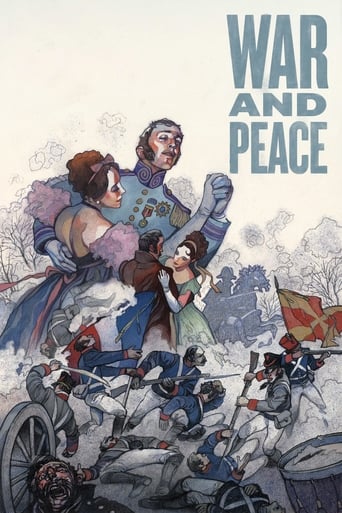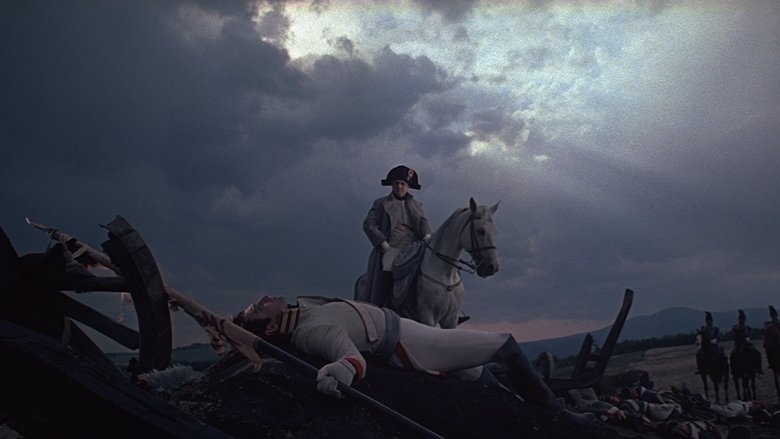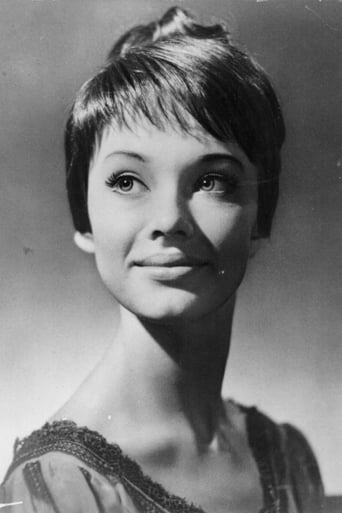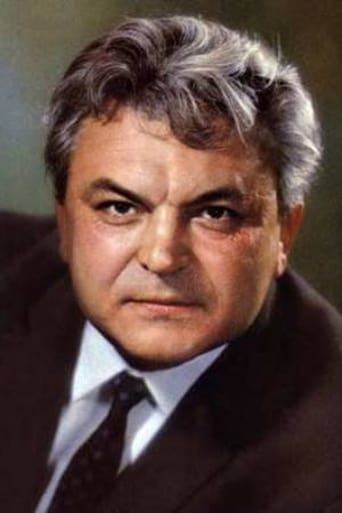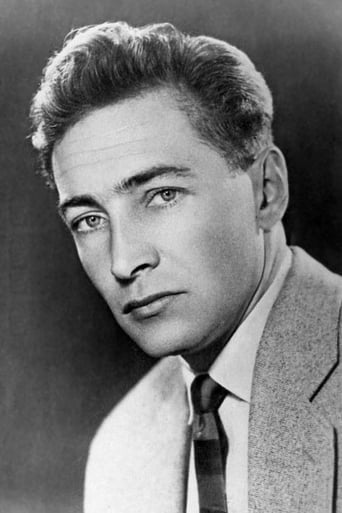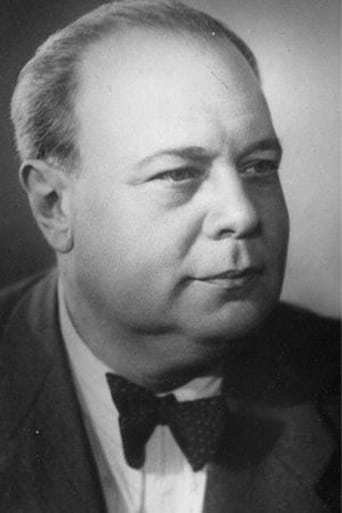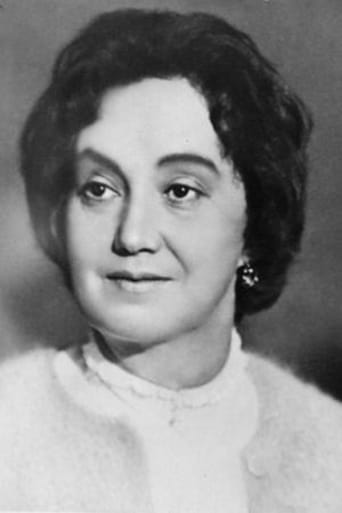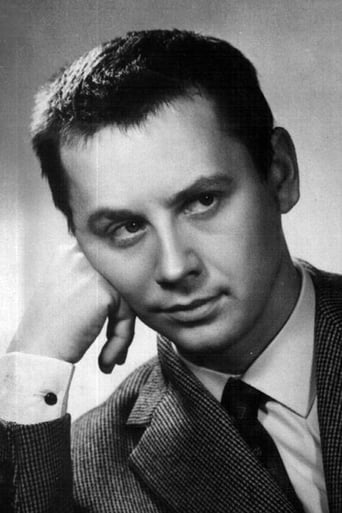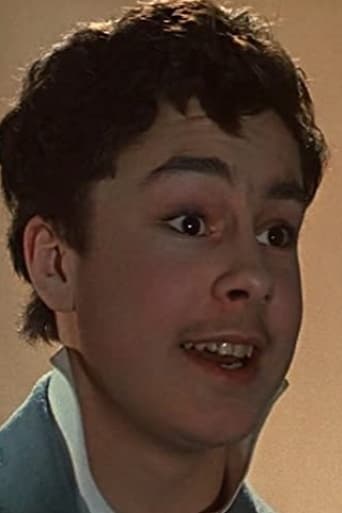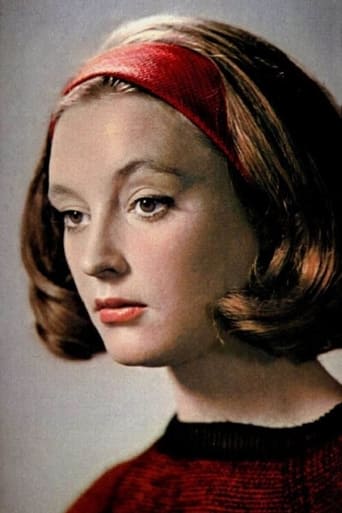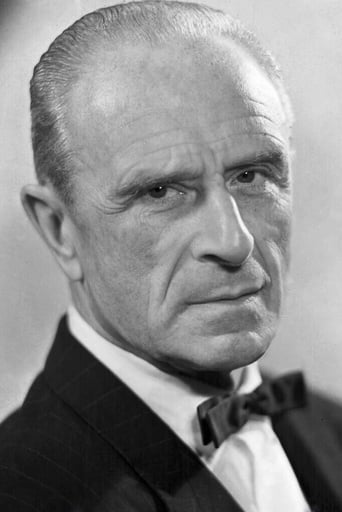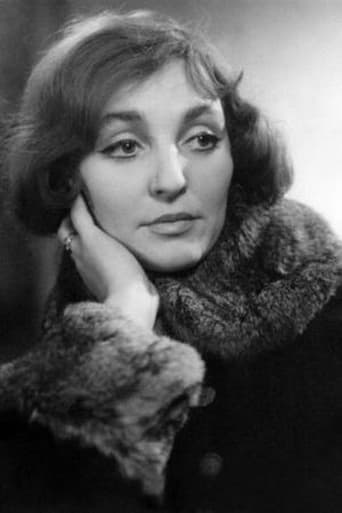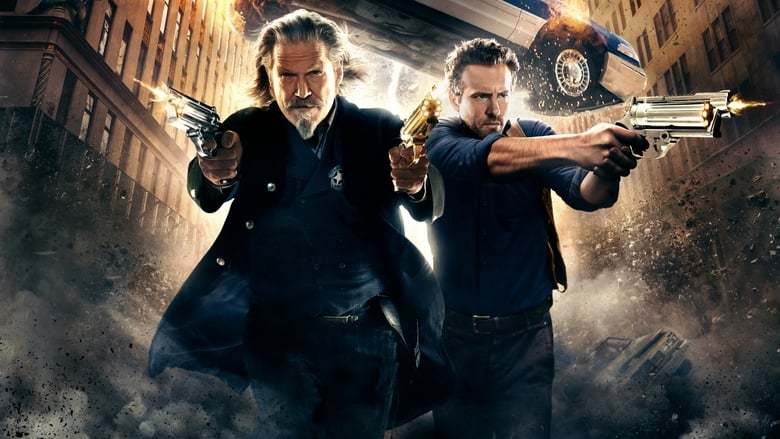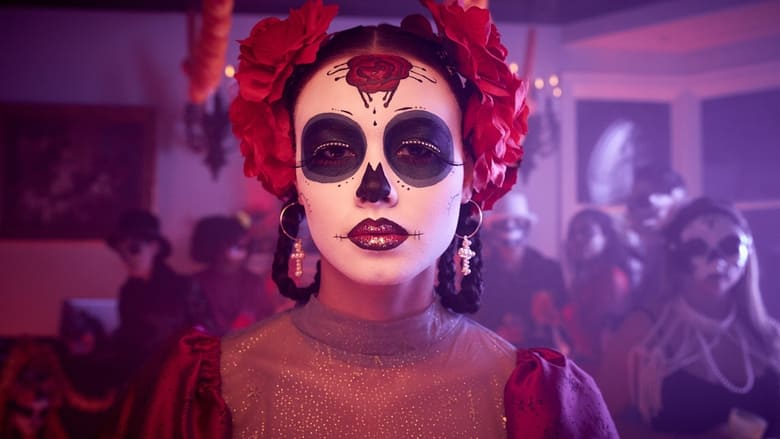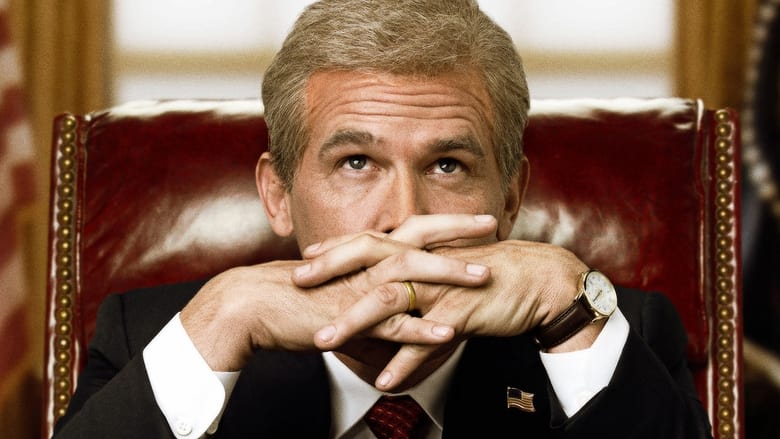A seven-hour epic adaptation of the novel by Leo Tolstoy. The love story of young Countess Natasha Rostova and Count Pierre Bezukhov is interwoven with the Great Patriotic War of 1812 against Napoleon's invading army.


Reviews
War and Peace the novel is so long its length has entered popular culture. So a four part, seven plus hour movie adaptation of it makes sense. But not if you're gonna devote a quarter of it to just one battle. I don't know if the Communist party was responsible for the third part, but it just drags. Yes, it's very real, and I love realism in a movie, but realism is not *sufficient*. The battle sounds superb on paper, certainly *looks* like the costliest battle ever shot, but it's a poorly directed, boring, overlong, confusing mess. The first two parts of this movie were very good: the balls, the duel, some of the soliloquies (the one where Andrei's first wife dies got to me), the scene where Rostova dances in the caretaker's place (also the best scene in the book, by the way). Yes, it's a little dated - everyone seems to act too much with their faces, and the voiceovers tend to be a tad much at times - but it's par for the course. What I minded was the third part bringing this movie down. It recovers somewhat during the fourth, but you realize it's no longer a masterpiece as you'd formerly hoped. Also, Bezukhov (Bondarchuk himself, sadly) is too old and too fat.
I tried to tackle Tolstoy's "War and Peace." I'd read "Anna Karenina" as a teen and found it interesting. And I positively enjoyed "Crime and Punishment" later in life -- an AXE MURDER! But "War and Peace" was simply too big. Natasha is a doll-like figure resembling Audrey Hepburn, with her long neck, slender figure, wide eyes, and fragile features. She's elfin with a touch of the Tatar brush. She looks as if you could take one of her long bones and snap it like a twig. Only her lips are plumper than Hepburn's, suggesting she is prepared to be debauched more thoroughly than Audrey Hepburn ever was.Still, she looks like an adolescent throughout, and has an adolescent's impatient, flighty notion of love. She pines for Prince Andre and he finally proposes, but there is no formal engagement, and he tells her he will spend a year away to give her time to think. She thinks. Then she leaps headlong into a glandular love with some already-married Schmuck who tries to sweep her away and ruin her. She's eager but her family prevents it. The Battle of Borodino, a Russian victory that didn't save Moscow, is long, action filled, gory, smoky, hard on horses, and confusing. Half the time I couldn't tell who was who. Andre is in the midst of the fighting, and Pierre is covered with mud while observing, but it was possible to identify the French in long shots only because their headgear had a kind of plume sticking straight up, and in close ups their blue blouses could be clearly seen. I said that it's hard on horses because of the obvious use of a device called the "running W". Wires were attached to the horse's front legs and the horse was made to gallop until the wire ran out to its full length, yanking the horse's legs out from under him.It's extremely impressive. At any given time there may be literally hundreds of soldiers galloping, marching, or running across the screen amid the racket and puffs of exploding shells, often in aerial shots. But it's impossible to follow the developments. It's all done by editing or montage, rather than from a particular individual's point of view. I'd contrast it with a much briefer and equally effective, studio-bound scene of combat from "Pride of the Marines." In some ways the most harrowing scenes are those of executions, not battles. We get to know a little about the people being tied helplessly to the stake, blindfolded, and shot. In battle you can defend yourself, but this is murder. Bondarchuk, the director, has given himself the part of Pierre, a nice sympathetic role, but he doesn't try to become a matinée idol. How could he? He looks like James Coco. He has a fine scene in which he has a duel with some smart aleck and almost by accident shoots the fellow in the ribs, after which, filled with guilt, he runs drunkenly through the snowy woods, stumbling over everything.The night before Borodino, Andre and Pierre have a chat in Andre's dark cabin. Andre is full of misgivings about tomorrow, certain he will be killed. And he rhetorically asks some simple questions. Tomorrow hundreds of thousands of men will try to butcher one another and he, Andre, will be among the most enthusiastic. The side that kills the most will be the winner. But everyone, soldier and civilian alike, will suffer. If God is good, how can He allow all this crap to continue? It's a conundrum that has no satisfactory answer although most world religions have been at pains to find one. Christianity decided that God gave man free will as a kind of test. He can create evil if he likes. In other Eastern religions, suffering is working off some bad karma leading to redemption in the next life. But Andre never answers his own question. He's just perplexed by it all.A lusty theme of nationalism runs through the film. The narration tells us about the role of the Russian spirit in turning Napoleon away from Moscow. It's believable enough. In what the Russians call "The Great Patriotic War" and we call "World War II", it's doubtful that many involved were fighting for Josef Stalin. I found the narration a bit much, rather like Basil Rathbone's patriotic platitudes at the end of his Sherlock Holmes movies. But there is a warm little scene at the time of the wolf hunt. In a humble wooden cottage, after a simple meal, a servant in the next room is playing a balalaika and the patriarch at the table takes up his guitar and begins to play an unpretentious ballad. He begs Natasha to dance and she holds her skirt wide and glides from place to place with tiny graceful movements. The tempo picks up and she spins madly and joyously. Afterward the old man applauds and wonders how -- what with her French nanny and her cosmopolitanism -- Natasha could still be so aglow with Russianism. The later part of the film gets all spiritual, as Tolstoy himself did.Its most pronounced attribute is its length. It's a longie. It goes on and on and on. It's like driving through Texas. And it still fails to cover all the text. There's nothing about Pierre's experimentation with the Masons, for instance. I don't know what it was about the Napoleonic wars but Russian General Bagration, who became a hero at the Battle of Austerlitz, had a salad named after him. No kidding. You can look up the recipe easily. And then, of course, Napoleon is a creamy pastry and Beef Wellington is roasted in a pastry shell. Something about food and the French, I expect. A Gallic influence seems to be everywhere. And now, please excuse me as I warm my baguette over the bidet.
Who ever mentions Sergei Bondarchuk when it comes to talking and writing about great movie directors? and so we should realize he only happens to have directed the best film epic ever made and he also co-adapted the massive Tolstoy novel its based upon as well as performing in the leading role...This colossal Russian version of War and Peace also happens to be the single greatest achievement in the history of motion pictures and in my opinion no other film compares to this incredible masterpiece that is most certainly not to be missed by anyone...I have read several hundred favorite movie lists and this film is more or less never included in any of them and its also more or less never mentioned within any of the many great and famous movie books that I have read either and the only reasons I can think of as to why this fantastic Russian version of War and Peace is so sadly and obviously underrated is because there still exists remnants of cold war paranoia and extreme jealousy from a Hollywood that has never been able to equal or surpass this monumental Russian movie and not even with their usual and almost total dependence upon CGI has Hollywood duplicated or exceeded its majesty and grandeur and there is no CGI used within this Russian version of War and Peace and just imagine how there is no other type of computer aid within this movie whatsoever...Its really difficult trying to find words that are able to accurately describe to someone who has never seen it just how awesome and visually stunning this supreme motion picture actually is and it contains so many intimate and panoramic scenes filled with sights and sounds and colors never seen before or since within any other movie,as well as containing the most vast and amazingly realistic battle scenes ever filmed and I've seen thousands of movies and just about every epic film ever made and none of them can touch this sense staggering Russian motion picture...I clearly remember how the very first time I ever saw this film was by accident late one night on television many years ago and I was stunned and amazed and during my still awakening state I thought I was watching footage taken by someone who went back in time and actually filmed real history taking place during the early 1800s and in all seriousness,that is really no exaggeration at all,because this film is that well made and its that realistic and its all the more intense and incredible of an accomplishment for being a film that was made back in the 1960s...And so do not miss this brilliant Russian version of War and Peace and be sure to watch it digitally re-mastered in its original wide screen format and once you've seen it you'll never be able to forget it...
Sergei Bondarchuk, one of the most talented and important Russian filmmakers (he is known as an actor and epic- director) had made many good movies, very interesting technically and artistically. All of them are based on the first-class books (novels, stories, plays, and non-fiction) by the talented writers: Leo Tolstoy, Alexander Pushkin, Anton Chekhov, John Reed, and Mikhail Sholokhov, a Nobel Prize winner for Literature. Sholokhov's authorship of "Quiet Flows the Don" has been questioned lately but the novel is undeniably great.Bondarchuk's finest directing achievement is 7 hours long epic "Voina i Mir" aka "War and Peace" which is a great film, worth of all money and effort spent. "War and Peace" which took over five years to complete is a masterful combination of many genres (just as Leo Tolstoy's greatest novel is). It is an awesome epic, and a lot has been said about the breathtakingly spectacular battle scenes that were shot on the historical locations and involved tens of thousands of extras, horses, explosions, and complex camera moves. The film is also the incredibly accurate period piece, moving romance, family drama, search for meaning of life (as all Leo Tolstoy's works are: "I want only to say that it is always the simplest ideas which lead to the greatest consequences. My idea, in its entirety, is that if vile people unite and constitute a force, then decent people are obliged to do likewise; just that. "). There are so many unforgettable scenes in the film: the first Natasha's ball and her waltz with Andrei Bolkonsky, the death of young Petya Rostov from a stray bullet, the meeting of Natasha and deadly wounded Andrei and their conversation...and many, many more. Sergei Bondarchuk's choice of the actors for the familiar and beloved characters has proved to be mostly successful. Ironically, the least convincing is for me Pierre Bezukhov. Bondarchuk cast himself as one of the most important novel's heroes, Leo Tolstoy's alter ago, and even though he was a very talented actor, I can't forget that he was twice as old as Pierre when he took the role. One of the most memorable performances was given by the veteran screen and stage actor, Anatoly Ktorov as old Prince Nikolai Bolkonsky. Ktorov's aristocratic looks and noble manners along with his talent made him simply perfect for the role of opinionated, proud, sarcastic but frank and absolutely non-sentimental nobleman. Antonina Shuranova shot to fame in 1966 after her stunning film debut opposite Anatoli Ktorov as his daughter and Andrei's sister, Princess Mariya with her "radiant eyes". Bondarchuk took the risk casting young professional ballerina Lyudmila Savelieva in the coveted role of Natasha Rostova, the most beloved female character in the Russian Classical Literature. Savelieva was natural as Natasha whom we see first as a 12 year old restless, spontaneous, gushing girl and in the final scene as a young woman who had lived though mistakes, regrets, and terrible losses.I've seen "Voina i Mir" many times. I was even lucky to see it on the big screen in Moscow. It was originally released in four parts: I: Andrey Bolkonskiy (1965), II: Natasha Rostova (1966), III: 1812 god (1967), and IV: Pierre Bezukhov (1967), and for many years it had been shown in Russia as four films. To see this miracle on the big screen was the experience I will not forget.
